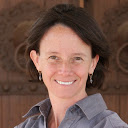From HuffPost Impact: Interview with A TOWERING TASK film director, Alana DeJoseph (Mali)
Alana DeJoseph (Mali 1992–94), director of the film “A Towering Task” was recently interviewed by Ann Paisley Chandler for HuffPost Impact. The interview, entitled “A Towering Task: A Peace Corps Documentary.”
The Peace Corps is more relevant today than it ever was, but it’s not the same Peace Corps of the 60s. There is a fascinating story that has never been told. Please consider supporting this campaign today.
•
Ann Paisley Chandler: What inspired you to start A Towering Task?
Alana DeJoseph: One in every 1,450 Americans is a Returned Peace Corps Volunteer. As Americans we care about how we show up in the world, and I think lately people are frustrated rather than proud about our interactions with the rest of the world. The foreign aid budget is less than 1% of the entire US budget, and of that 1%, the Peace Corps’ budget is about 1%. The Peace Corps has had incredible ripple effects in the last 55-years since its founding, and in the popular media we hear very little about it. As Peace Corps Volunteers, we are natural born storytellers, and so since my service as a Peace Corps Volunteer in Mali (1992-1994), I have dreamt about telling a Peace Corps story. Little did I know that I would get the opportunity to tell the Peace Corps story. There are fabulous documentaries about individual volunteer experiences that provide incredible insight into places around the world many of us have never heard of. However, what has been missing is a big picture program about the Peace Corps’ past, present, and future.
I had just had the opportunity to work on such a landmark documentary about the U.S. Forest Service (The Greatest Good) and on another about conservationist Aldo Leopold (Green Fire), when some of our film team members who are Returned Peace Corps Volunteers basically told me to stop talking about the need for the Peace Corps documentary and get producing. The more research I did, the clearer it became how really important and urgent this documentary is at this time, not just to capture the early voices, but to bring the Peace Corps back into the public discourse. As an American, I feel very proud that we have the Peace Corps, but until I started working on this program I knew so little about an agency I had been a part of for two years. And I think this is true for most of us in this country. I was inspired by volunteering myself, but I have been compelled by the need for this program.
APC: Tell us about the documentary — its purposes, goals, vision.
AD: This year the Peace Corps is celebrating its 55th birthday. Over 220,000 volunteers have connected with communities around the globe. But when we (very rarely) hear about the Peace Corps in the news, it is about tragic incidents, murders, deaths, agency mismanagement. These stories are important and help bring light to problems that need fixing. However, we are missing the context. With so little information on the Peace Corps (and most of it focused on the 60s or individual volunteers) reaching the general public, these news articles become attention grabbing exposés rather than empowering and truly informing media.
The purpose of A Towering Task is to provide that context. We will tell the story through powerful interviews with host country nationals, Peace Corps Volunteers and staff, and scholars and journalists who put the story of the Peace Corps into context. Voices from all over the world will share not only the work and impact, but also the complications and challenges of half a century of peace building and diplomacy. By thoughtfully telling the story of the Peace Corps’ past and present, and then taking a look at its future, we want to equip the American public to redefine what it means for America to join the world community – not as a wager of war, but as a peacemaker and problem solver.
APC: What is the fundraising goal, and how is it set?
AD: Fundraising for documentaries is always a challenge, especially when it is a documentary of this scope. But with a country that holds this agency dear (even if at this point it might not be terribly aware of its history or what it does) and a community of volunteers and staff who have been transformed by their experiences, there is a real opportunity to galvanize America into putting a stake in the ground for peace. Nudging the national discourse in the direction of community, peace, and understanding is something we all can gain from. For that reason, we have decided to embark on a one million dollar crowdfunding campaign to benefit both the documentary production and the National Peace Corps Association, whose mission is to champion lifelong commitment to Peace Corps ideals. If we were just to think of the returned volunteer community of 220,000, the math is simple: If one in five returned volunteers gives $25, we will have exceeded our goal. But I believe there is an even bigger community: America. We as Americans need to care about what our government does in the world. But to care we need to understand. And that understanding comes from learning about the past and present, so we can ask the important questions regarding our future. So, to tell the Peace Corps story is in all of our interests and I am hoping that as Americans we will want to support documentaries like this.
APC: Can you speak on partnerships?
AD: Initially, we were planning a crowdfunding campaign just for the documentary. However, our team member, Meg Garlinghouse (founder of LinkedIn for Good), suggested partnering with the National Peace Corps Association (NPCA). It made perfect sense: the Peace Corps community (volunteers, staff, returned volunteers, family, friends, and the peacemakers of this world) has yet to come together as a true community. But it has so much potential. I know as volunteers and returned volunteers we tend to be fiercely loyal to the countries in which we served; however, the connection to the Peace Corps itself isn’t always as close. This is a very diverse community with lots of strong opinions, which to me really is the beauty of it, but bringing everybody together is difficult. The one thing most of us agree on, though, is that there should continue to be a strong Peace Corps that America takes a stake in.
The National Peace Corps Association is the logical container for this newly ignited community. The momentum created by our crowdfunding campaign will not only produce this landmark documentary, but will empower all of us to continue to come together for the important, urgent matters: the conversation around peace, the relationship the US has with the rest of the world, the narrative about (former Peace Corps) countries such as Iran and Afghanistan, global matters such as climate change, social justice, and resource shortages. When A Towering Task is broadcast and the American public feels a renewed ownership in the agency, NPCA will be a logical place to find a community that can empower the conversation.
APC: What do you find the most rewarding aspect of working on a global level?
AD: The Peace Corps’ stories often get told from an exclusively American perspective. And the irony is that in many host countries the Peace Corps is better understood than it is back here at home. Interviewing host country scholars, community members, and Peace Corps country staff is bringing to light nuances about this story that really help in getting the full picture. For example, when the Peace Corps was first founded, the idea of a “reverse Peace Corps” was front and center. Host countries would send their volunteers to join our communities for two years, just as we were sending our Peace Corps volunteers all over the world. Thinking of the Peace Corps as an exchange rather than helping, makes the whole concept less paternalistic. And I would argue that the Peace Corps has worked very hard over the decades to reinforce this notion of an exchange. It is truly rewarding to look at our efforts both from within, and from the perspective of the world.
The story of the Peace Corps has so much passion, so much vision, and the potential to serve as a prism through which to view our society as a whole over the last six decades.
•
Alana DeJoseph, the Producer and Director of A Towering Task, has worked in video and film production for over 30 years. She has worn many hats as producer, director, videographer, editor, and even actor, but her heart has always been in documentaries. Born in Munich, Germany, Alana quickly got involved in film production at the age of 10, graduated with degrees in Theater and Business from Washington and Lee University in Lexington, Virginia, and then joined the Peace Corps in Mali, West Africa in 1992. Between 2003 and 2005, Alana was involved in the production of The Greatest Good, a documentary about the US Forest Service. Being a Returned Peace Corps Volunteer herself, she fervently believes that just such an in-depth, comprehensive documentary is needed for the Peace Corps.
Follow Ann Paisley Chandler on Twitter: www.twitter.com/apschandler


PCV 1981-1985 Banquet PI lived in the mts with a minority tribe with no written language and worked in a clinic. The area was slowly logged of it’s trees to reinforce a mine owned by the British and for market. The once pristine Mt waters ran red all the way to the sea. The soil on the mts became unstable and began literally falling off the sides of the mts. I also worked in a hamleted area of Mindano with farmers dealing with sanitation, malaria & measles.
So many stories!!:) I have a namesake in the mts I plan to hike and go see one of these days.